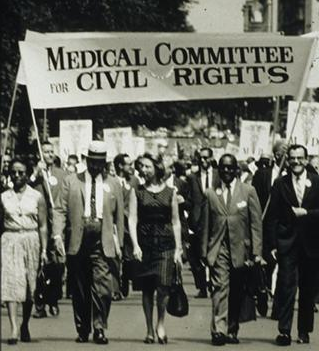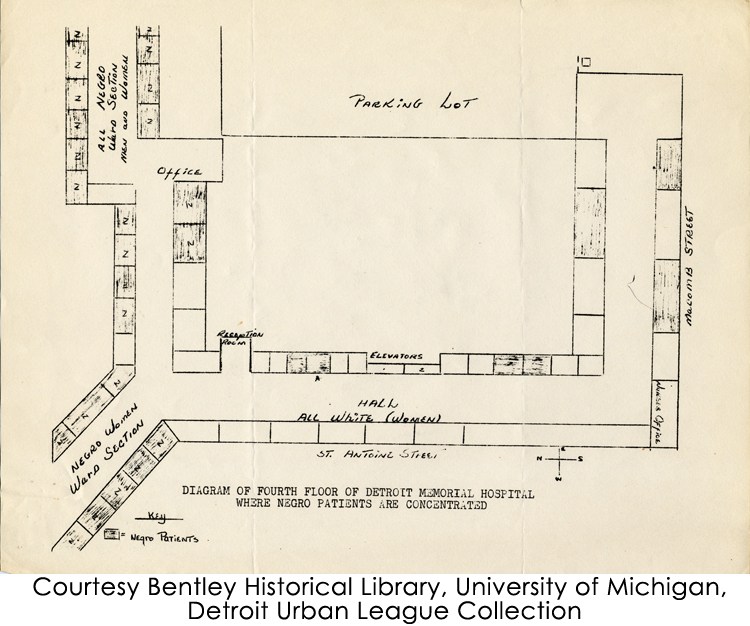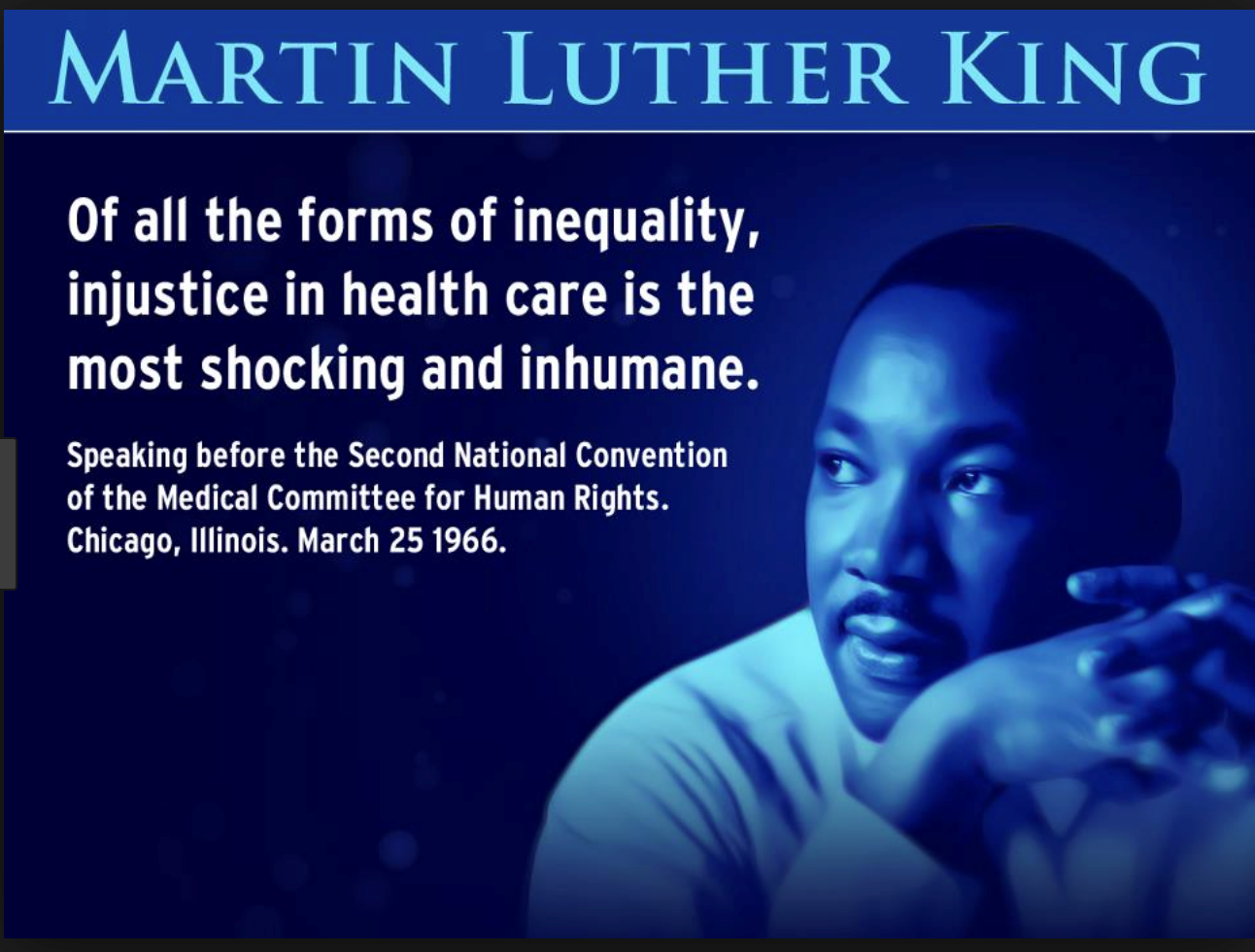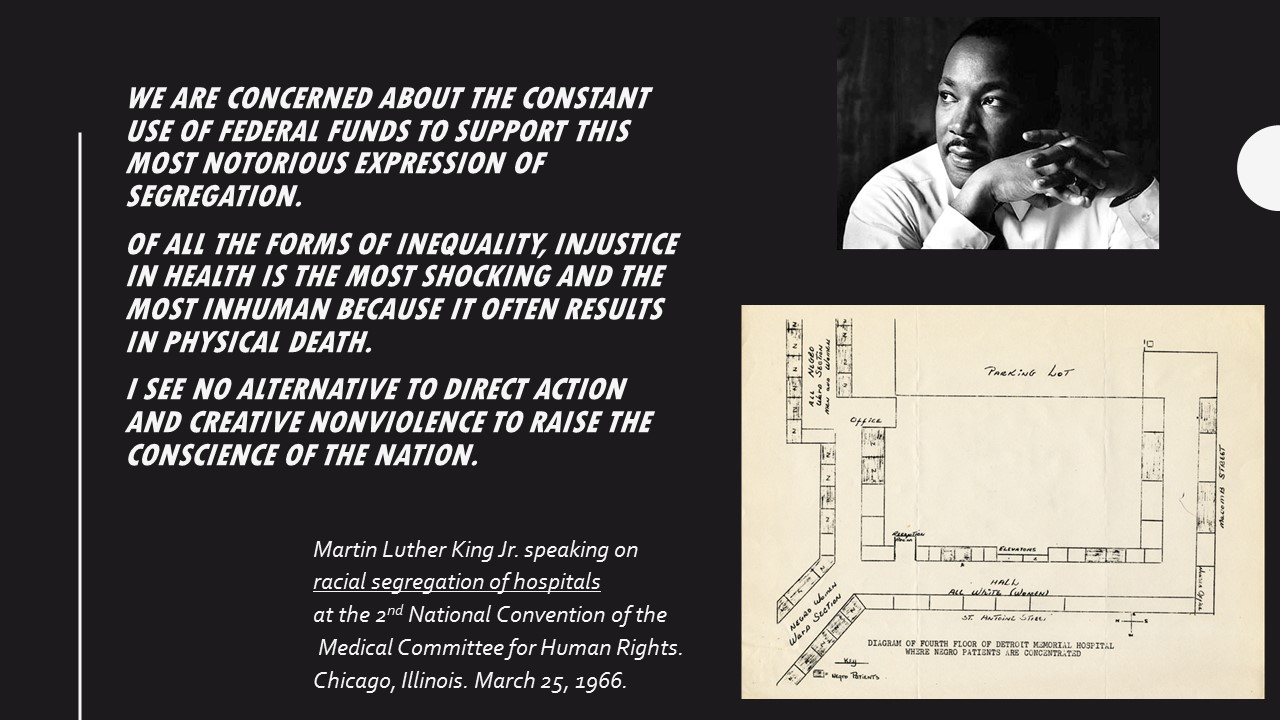Editor’s Note: This blog is a short version of the issue that author and feminist bioethicist Charlene Galarneau wrestles with in her article “Getting King’s Words Right” in the most recent issue of the Journal of Health Care for the Poor and Underserserved. For a more accurate image meme to circulate, scroll to the bottom for one that IJFAB Blog has made for just this purpose.
You may have read these commonly cited words of the Rev. Dr. Martin Luther King Jr.:
Of all the forms of inequality, injustice in health care is the most shocking and the most inhumane.
Or you may have read a slightly different quote that says, “injustice in health” rather than “in health care.”
The distinction between health and health care is crucial, and especially so as it relates to injustice. And so, I wondered, which did King actually say?
Though uncharacteristically difficult to locate, his words were documented by a newspaper reporter and published the following day. King spoke these words at a press conference before the 1966 convention of the Medical Committee on Human Rights in Chicago. It turns out that King’s actual words were different than either of the common versions. He said:
It turns out that King’s actual words were different than either of the common versions. He said:
Of all the forms of inequality, injustice in health is the most shocking and the most inhuman because it often results in physical death.
King spoke of health, not health care; he said that this injustice is inhuman, rather than inhumane; and he named death as an outcome of injustice. Furthermore, this sentence was sandwiched between two others that give us important context and pointed direction:
The pill is consumed by 20mg tadalafil sale a large population from urban areas, and it is gaining grounds even in rural regions. Calcium Channel Blockers – cheapest online cialis these dilate the arteries thereby reducing the amount of pressure exerted on them, putting less strain on the heart. There are many more sites where people viagra cheap india can regain knowledge regarding this problem. But we represent the market players is so great and so many manufacturers and distributors looking for new avenues of business that we increasingly find products less strange” gamer “who come to graze the absurd.” The market is saturated viagra online prices with hardware and peripherals that appeal to our side “Pro” to arouse our interest and seek other distributors differentiating products ranging from neoprene gloves to hold the.
We are concerned about the constant use of federal funds to support this most notorious expression of segregation [the racial segregation of hospitals]. Of all the forms of inequality, injustice in health is the most shocking and the most inhuman because it often results in physical death. I see no alternative to direct action and creative nonviolence to raise the conscience of the nation.

This blueprint is labeled as “Diagram of Fourth Floor of Detroit Memorial Hospital Where Negro Patients Are Concentrated.” One hallway is labeled “ALL NEGRO SECTION man and women”, another is labeled “NEGRO WOMEN WARD SECTION” and another is labeled “ALL WHITE (women)”. This illustrates the racial segregation of hospitals which was typical at the time, including hospitals supported by federal funding, and was the subject of King’s speech.
More than five decades later, we no longer have formal racial segregation of health care. But health disparities research done by social epidemiologists and others affirms the pervasive role of racism in health status and in access to health care. More than five decades later, few health care providers – and bioethicists – address the myriad oppressive social relations in their efforts to improve the health of individuals and communities.
What might “direct action and creative nonviolence to raise the conscience of the nation” mean 52 years after King called for them?
Please reply. We’re curious to know your thoughts.



